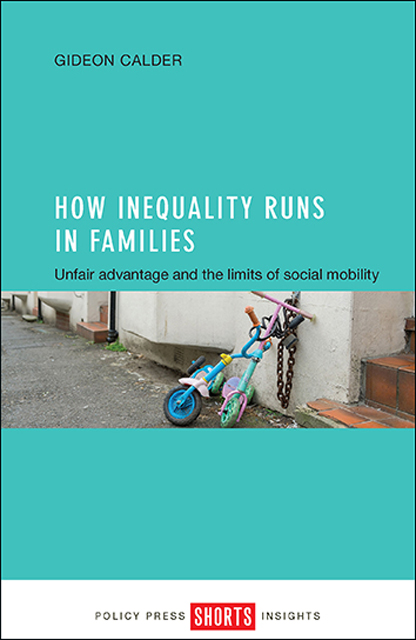Book contents
three - Social mobility and class fate
Published online by Cambridge University Press: 21 April 2023
Summary
Few things are as ripe for ‘proof’ by anecdotal evidence as social mobility. It’s like a special kind of magnet for folk wisdom. And the sense that it is stalling or in retreat raises familiar forms of qualm. Such qualms are often expressed in terms of a projection of one’s own story onto others.
Mobility stories
Here’s composer, artist and ex-member of Roxy Music Brian Eno in March 2016:
Social mobility has slipped back. If I were 20 now I’d have so much less opportunity than I did. A-stars and the right university have become very important, and nearly all those things eventually come down to money. (Eno, 2016, p 17)
Here’s an example from a Sunday Times story in July 2015:
Georgina Jones, 26, who grew up in a council estate in Peckham, southeast London, found her career prospects were transformed when she was given an internship at 16 by the Social Mobility Foundation. She now works as an associate at Taylor Wessing, a law firm, and, although she believes she would have made it this far because of her personal drive, it is time to increase the support offered to others to convert early promise into later success. (Hellen, 2015, p 5)
And here’s BBC broadcaster Andrew Neil, from a little further back:
I … was brought up in a council house…. I made it to an elite 16th Century grammar school in Paisley and then Glasgow University, a world-class 15th Century institution. I was part of the post-World War II meritocracy that slowly began to infiltrate the citadels of power, compete head-to-head against those with the ‘right’ background and connections and – more often than not – win. Britain’s class system seemed to be changing. (Neil, 2011)
These perspectives are those of people who have ‘made it’. Jones believes she would have made it anyway. The (as it happens, privately educated) Eno thinks the life chances of people like him are worse now. Neil is convinced that it was grammar schools that gave kids like him a ‘leg up’. Each speaks with sincere confidence about how their story would have gone, had things been different. This isn’t an exceptional trait of the successful.
- Type
- Chapter
- Information
- How Inequality Runs in FamiliesUnfair Advantage and the Limits of Social Mobility, pp. 39 - 70Publisher: Bristol University PressPrint publication year: 2016



